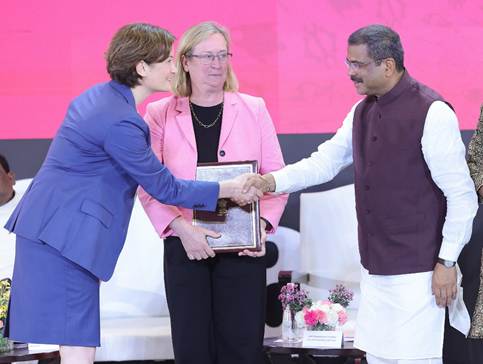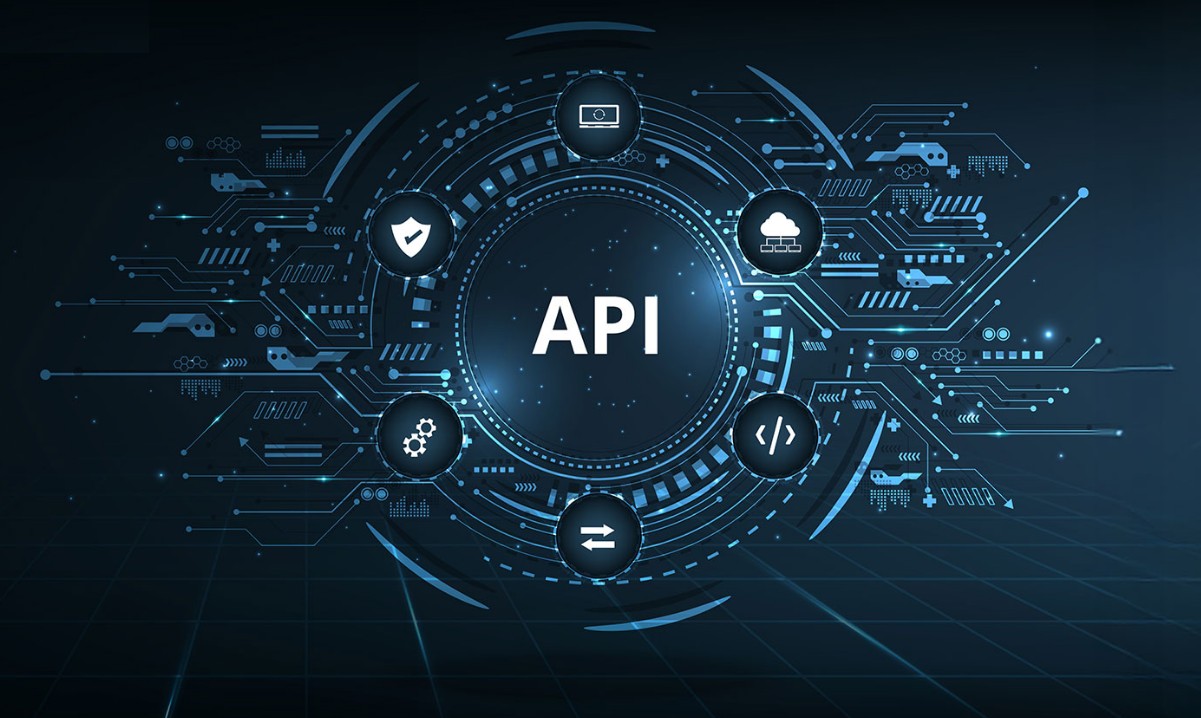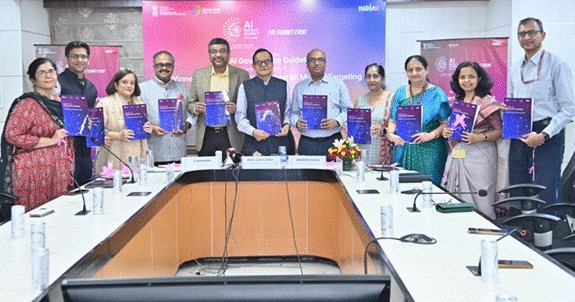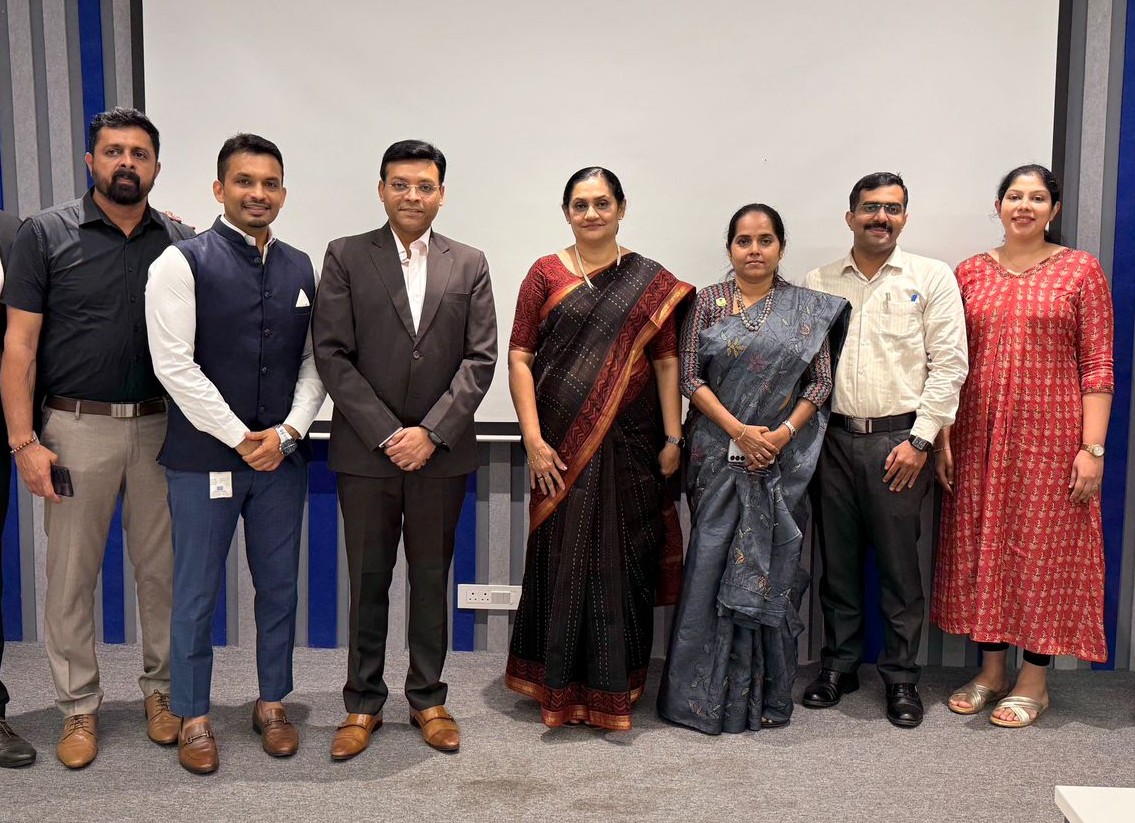New Delhi, July 29: To mark the fifth anniversary of the National Education Policy (NEP) 2020, Union Education Minister Dharmendra Pradhan inaugurated the Akhil Bharatiya Shiksha Samagam (ABSS) 2025 in New Delhi on Tuesday. The two-day conclave witnessed the launch of new education initiatives worth over ₹4,000 crore, laying the foundation for the next phase of educational transformation in India.
The event brought together policymakers, academicians, education ministers from 13 states and UTs, and representatives from higher education institutions across the country to reflect on the NEP’s implementation and future roadmap.
Speaking on the occasion, Pradhan said NEP 2020 was not just a policy but a “national mission” aligned with the vision of Viksit Bharat 2047. “Over the past five years, NEP has transitioned from policy to practice, revolutionizing classrooms, campuses, and communities,” he said. He called for collective action to ensure that “every classroom becomes a space for meaningful learning” and “every child’s potential is nurtured.”
New Projects and Announcements
According to the Ministry of Education, the Minister launched a wide range of projects across school and higher education segments:
- CBSE, KVS, and NVS infrastructure upgrades: Multiple new campuses and hostel facilities were inaugurated across Gujarat, Madhya Pradesh, Chhattisgarh, Himachal Pradesh, Punjab, Jammu & Kashmir, Tamil Nadu, Assam, and Uttarakhand.
- PM-JANMAN and DAJGUA Hostels: A total of 384 hostels for Particularly Vulnerable Tribal Groups (PVTGs) were announced under the PM-JANMAN and DAJGUA missions, costing over ₹1,300 crore.
- Digital Initiatives: The launch of the TARA App for reading fluency assessments and My Career Advisor App for personalized student guidance aims to bring data-driven and student-centric governance into education.
- Swachh Evam Harit Vidyalaya Rating (SHVR): A new 5-star green school rating system based on water, sanitation, behavior change, and environmental responsibility was introduced.
Higher Education Reform
The Department of Higher Education announced major digital and institutional reforms:
- AI Apprenticeship Scheme under NATS: Aimed at 1 lakh students, this scheme offers monthly stipends of ₹9,000 for graduates to build AI skills for industries such as healthcare, manufacturing, BFSI, and IT.
- Curriculum overhauls at IIT Delhi and IIT BHU: Both institutions have introduced flexible, multidisciplinary programs aligned with NEP goals, with IIT BHU offering students five academic tracks and IIT Delhi revamping its UG and PG offerings.
- Launch of ViBe AI Learning Platform: Developed by IIT Ropar, the platform delivers real-time feedback and active learning using AI-based smart checks and adaptive challenges.
- Sanskrit Dictionary and Knowledge System: A new Encyclopaedic Dictionary of Sanskrit and the KoshaSHRI Portal were launched for linguistic and cultural research, comprising over 1 crore references from 1500 ancient texts.
Global Collaborations
In a significant move toward internationalization of Indian education, Letters of Intent were signed with leading global universities:
- Western Sydney University and Victoria University will establish campuses in Noida and Greater Noida respectively.
- La Trobe University will open a campus in Bengaluru.
- University of Bristol is setting up a presence in Mumbai in collaboration with Indian institutions like Krea University and ATLAS SkillTech.
“These partnerships are a reflection of India’s commitment to building a globally connected and innovation-driven education ecosystem,” the ministry noted.
Thematic Focus Areas
ABSS 2025 hosted four thematic sessions centered around:
- Use of Indian languages in teaching
- Prime Minister’s Research Fellows (PMRF) and academic leadership
- Reimagining secondary education to achieve 100% Gross Enrolment Ratio (GER) by 2030
- AI’s transformative role in learning
The event also featured an exhibition on NEP innovations including experiential learning, sustainability, and AI-driven education tools.
Tribute and Message
The gathering began with a floral tribute to Padma Vibhushan Dr K. Kasturirangan, architect of NEP 2020. Minister of State Jayant Chaudhary read out the Prime Minister’s message, reaffirming the government’s resolve to place education at the core of India’s development agenda.









